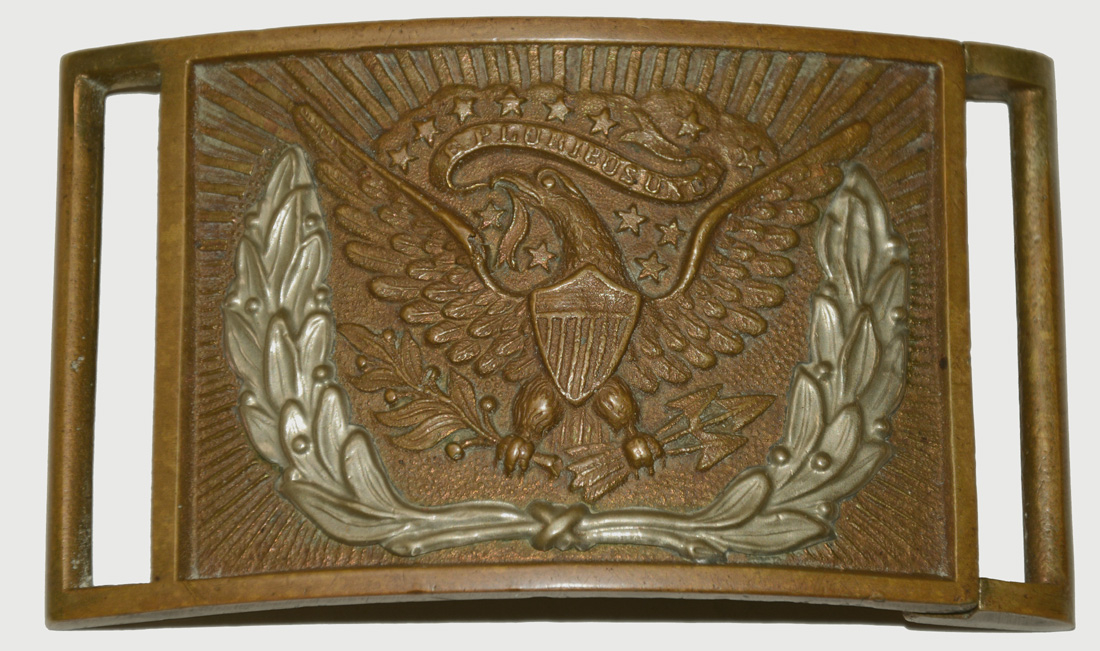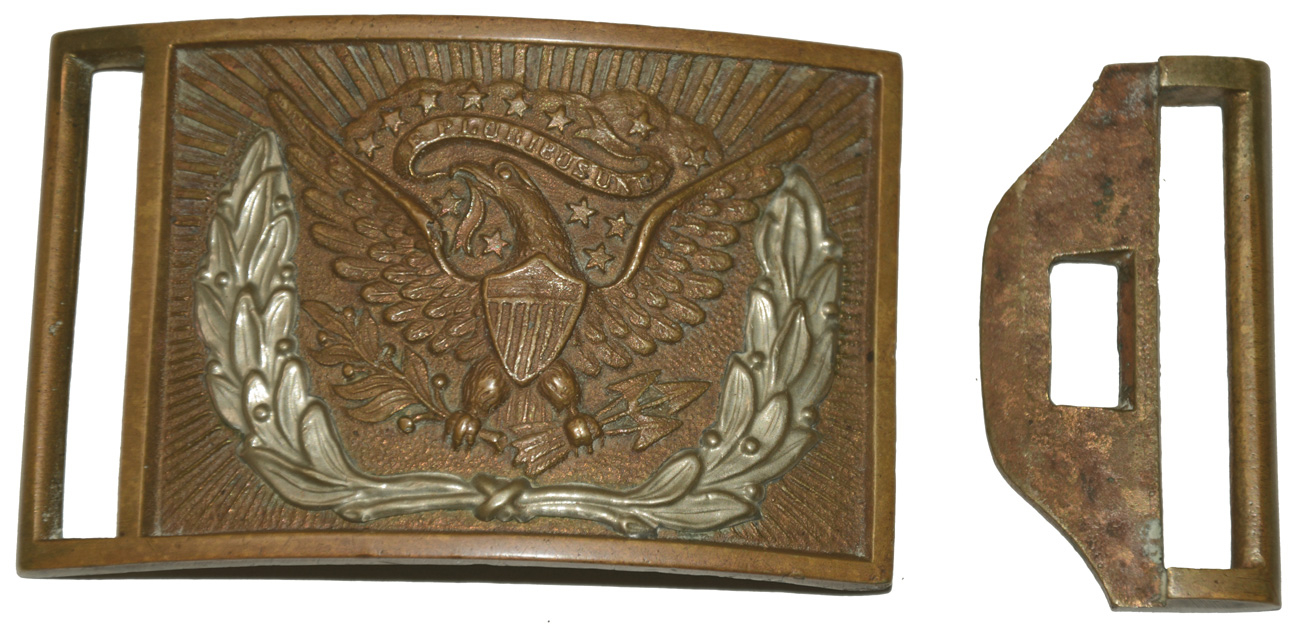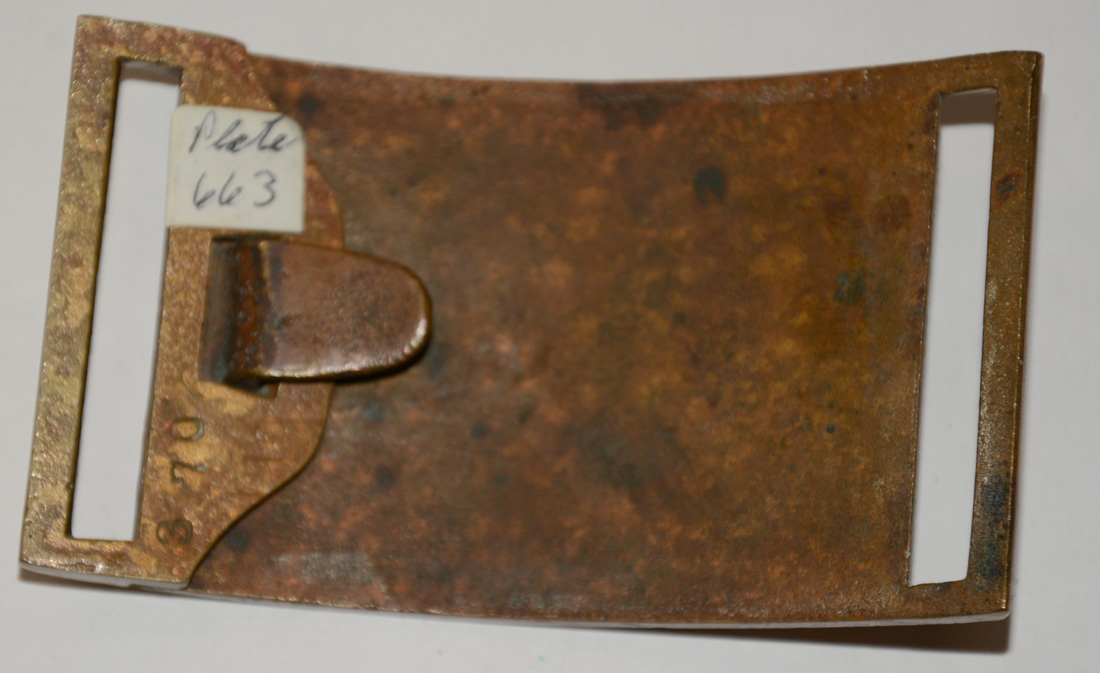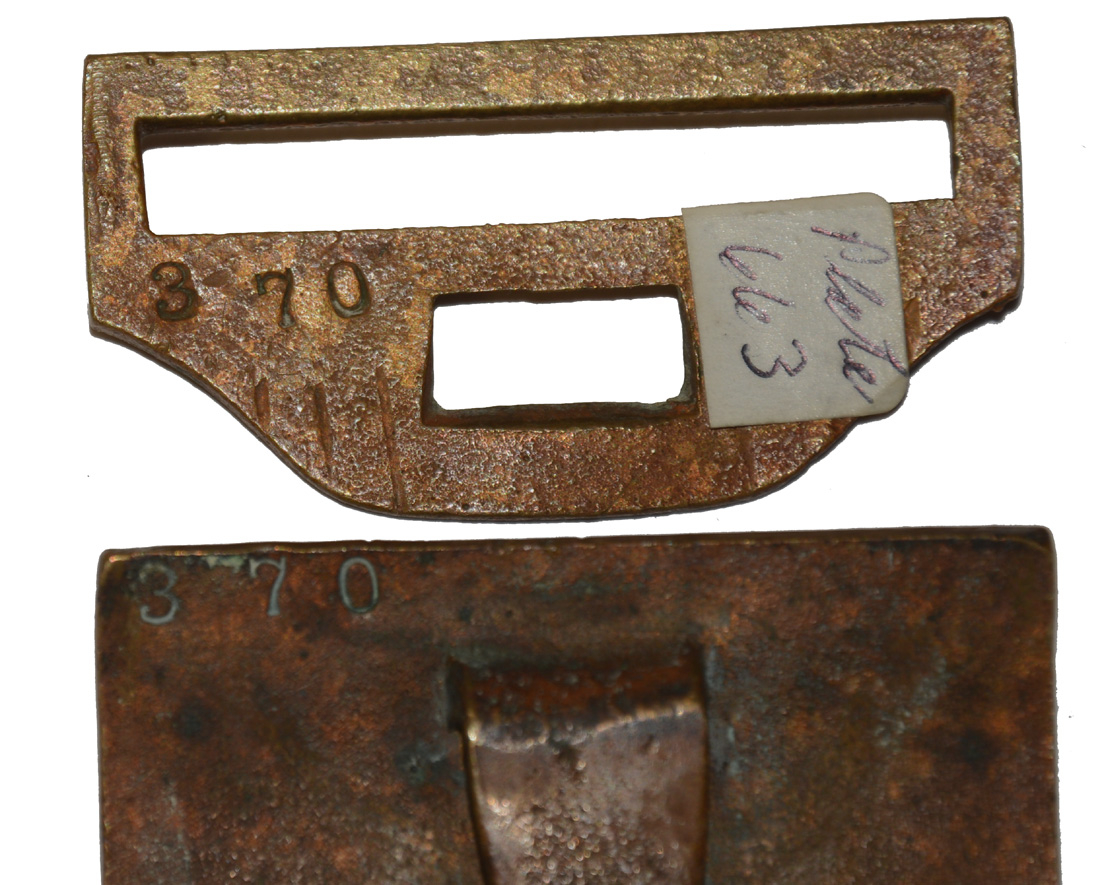site search
online catalog
RECTANGULAR M1851 SWORD BELT PLATE & HASP WITH MATCHING BENCH NUMBERS

Hover to zoom




$325.00 SOLD
Quantity Available: None
Item Code: 172-5765
These rectangular eagle plates were introduced in 1851 for wear by officers and by enlisted men carrying swords. The latter included cavalrymen, artillerymen, infantry sergeants, and others. Officers purchased their own belts and plates and those commercial versions often feature fine die work, gilt finish, and silver wash to the wreath and stars. Those thin, refined finishes have usually worn off. The enlisted versions, like this one, featured separately applied wreaths of “German silver,” i.e. nickel silver, which was cheaper at the time, but ironically more robust, leading many novice collectors to assume they are officers’ plates.
This is the regulation enlisted pattern dating mid-war: the plate was increased in height to accommodate a wider enlisted sword belt and in a cost-cutting measure the wreath was made in one-piece, rather than three, ending below the eagle’s wings, rather than appearing to end above by using a separate piece on either end.
This example is in very good condition, with nice patina, and comes with its matching hasp. Both plate and hasp are numbered “370,” a “bench number” applied within the shop once they were filed and hand-fitted after the casting process, before being sent on to be mounted on a belt by leather workers.
This displays very nicely and is a key piece in a belt plate collection or display relating to one of the soldiers entitled to wear them. [sr] [ph:L]
~~~~~~~~~~~~~~~~~~~~~~~~~~~~~~~~~~~
THIS ITEM, AS WITH ALL OTHER ITEMS AVAILABLE ON OUR WEB SITE,
MAY BE PURCHASED THROUGH OUR LAYAWAY PROGRAM.
CLICK HERE FOR OUR POLICIES AND TERMS.
THANK YOU!
Inquire About RECTANGULAR M1851 SWORD BELT PLATE & HASP WITH MATCHING BENCH NUMBERS
Most Popular
Historical Firearms Stolen From The National Civil War Museum In Harrisburg, Pa »
Theft From Gravesite Of Gen. John Reynolds »
Selection Of Unframed Prints By Don Troiani »
Fine Condition Brass Infantry Bugle Insignia »
featured item
RARE USN GOSPORT NAVY YARD PRIMING FLASK
Gosport Shipyard was the original name of the facility in Portsmouth, Virginia, that was founded in 1767, passed into the hands of Virginia in the Revolution, was leased from that state by the U.S. government in 1794, purchased by them in 1801 and… (490-6824). Learn More »


